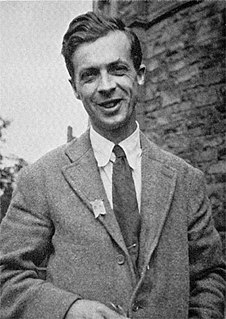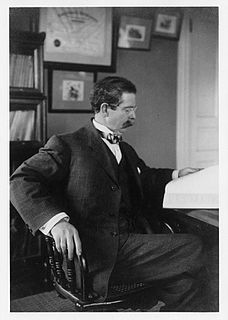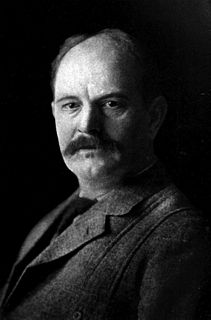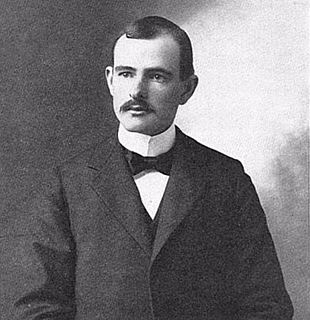Related Research Articles

Sir Julian Sorell Huxley was an English evolutionary biologist, eugenicist, and internationalist. He was a proponent of natural selection, and a leading figure in the mid-twentieth century modern synthesis. He was secretary of the Zoological Society of London (1935–1942), the first Director of UNESCO, a founding member of the World Wildlife Fund, the president of the British Eugenics Society (1959-1962), and the first President of the British Humanist Association.
Miklos Dezso Ferenc Udvardy was a Hungarian biologist and biogeographer. He was born on March 23, 1919, in Debrecen, Hungary to the noblemen Miklos Udvardy de Udvardy et Básth and Elizabeth Komlossy de Komlos. Despite an early interest in birds, his father encouraged him to study law, but later went on to earn a doctorate in biology from the University of Debrecen in 1942. His first position was as research biologist at the Tihanyi Biological Station on Lake Balaton in western Hungary.
Edward Max Nicholson was a pioneering environmentalist, ornithologist and internationalist, and a founder of the World Wildlife Fund.

Elliott Ladd Coues was an American army surgeon, historian, ornithologist, and author. He led surveys of the Arizona Territory, and later as secretary of the United States Geological and Geographical Survey of the Territories. He founded the American Ornithological Union in 1883, and was editor of its publication, The Auk.

Margaret Morse Nice was an American ornithologist, ethologist, and child psychologist who made an extensive study of the life history of the song sparrow and was author of Studies in the Life History of the Song Sparrow (1937). She observed and recorded hierarchies in chicken about three decades ahead of Thorleif Schjelderup-Ebbe who coined the term "pecking order". After her marriage, she made observations on language learning in her children and wrote numerous research papers.

Robert Ridgway was an American ornithologist specializing in systematics. He was appointed in 1880 by Spencer Fullerton Baird, secretary of the Smithsonian Institution, to be the first full-time curator of birds at the United States National Museum, a title he held until his death. In 1883, he helped found the American Ornithologists' Union, where he served as officer and journal editor. Ridgway was an outstanding descriptive taxonomist, capping his life work with The Birds of North and Middle America. In his lifetime, he was unmatched in the number of North American bird species that he described for science. As technical illustrator, Ridgway used his own paintings and outline drawings to complement his writing. He also published two books that systematized color names for describing birds, A Nomenclature of Colors for Naturalists (1886) and Color Standards and Color Nomenclature (1912). Ornithologists all over the world continue to cite Ridgway's color studies and books.

Austin Roberts was a South African zoologist. He is best known for his Birds of South Africa, first published in 1940. He also studied the mammalian fauna of the region: his work The mammals of South Africa was published posthumously in 1951. The 7th edition of Roberts' Birds of Southern Africa which appeared in 2005, is the standard work on the region's birds.

Leonhard Hess Stejneger was a Norwegian-born American ornithologist, herpetologist and zoologist. Stejneger specialized in vertebrate natural history studies. He gained his greatest reputation with reptiles and amphibians.

Frank Alexander Wetmore was an American ornithologist and avian paleontologist. He was the sixth Secretary of the Smithsonian Institution.

Frank Michler Chapman was an American ornithologist and pioneering writer of field guides.

Clinton Hart Merriam was an American zoologist, mammalogist, ornithologist, entomologist, ecologist, ethnographer, geographer, naturalist and physician. He was commonly known as the 'father of mammalogy', a branch of zoology referring to the study of mammals.
Austin Loomer Rand was a Canadian zoologist.

Florence Augusta Merriam Bailey was an American ornithologist, birdwatcher, and nature writer. Between 1890 and 1939, she published a series of field guides on North American bird life. These guides were often written with amateur birdwatchers in mind, leading to the popularity of the birding movement.
Stewart Springer was an American ichthyologist and herpetologist. He was a world-renowned expert on shark behavior, classification (taxonomy), and population distribution. More than 35 species of sharks, skates, rays, and other creatures are either classified by or named after him.

Joseph Grinnell was an American field biologist and zoologist. He made extensive studies of the fauna of California, and is credited with introducing a method of recording precise field observations known as the Grinnell System. He served as the first director of the Museum of Vertebrate Zoology at the University of California, Berkeley from the museum's inception in 1908 until his death.

Alexander Frank Skutch was a naturalist and writer. He published numerous scientific papers and books about birds and several books on philosophy. He is best remembered ornithologically for his pioneering work on helpers at the nest.

Richard Charles Banks, Ph.D. is an American author, ornithologist and Emeritus Research Zoologist on staff with the Patuxent Wildlife Research Center run by the U.S. Geological Survey and stationed at the Smithsonian Institution in Washington, DC. He is the founder of the Ornithological Council and known for his study of the migratory systems, patterns, and geographic variations of North American birds, primarily focusing on the research and analysis of white-fronted geese.

Albert Kenrick Fisher was an American ornithologist, known for his 1893 book The Hawks and Owls of the United States in Their Relation to Agriculture.
Brina Cattell Kessel was an American ornithologist.
References
- 1 2 Smith, Charles H. (2005). "McAtee, Waldo Lee (United States 1883-1962)" . Retrieved 20 Jan 2015.
- 1 2 3 "Waldo Lee McAtee". Washington Biologists Field Club. Retrieved 20 Jan 2015.
- 1 2 3 4 5 6 7 8 9 "Waldo L. McAtee papers, 1900-1961, bulk 1900-1904". Archives Online at Indiana University.
- ↑ McAtee, Waldo Lee (1918). A Sketch of the Natural History of the District of Columbia. H.L. & J.B. McQueen.